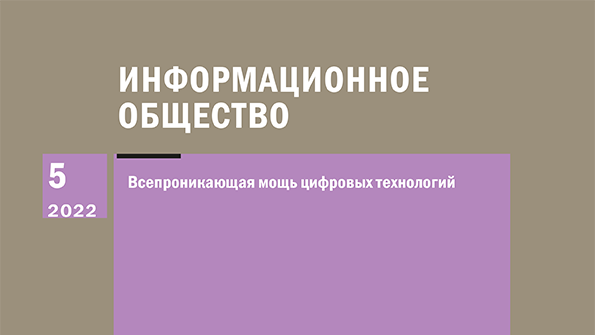In a traditional address to readers, editor-in-chief Tatiana Ershova writes:
More and more materials coming to the editors of our journal touch upon the problems of artificial intelligence. This all-pervading phenomenon instills many hopes and fears in its creators – people. Elon Musk, the founder of Tesla and SpaceX, sees artificial intelligence as a threat to humanity, since the actions of algorithms are not limited by anything. “Artificial intelligence is a case where you need to be far-sighted in matters of regulation, otherwise it may be too late,” he says.
The time has come for a comprehensive understanding of AI. And it seems to me that this should start with natural intelligence in the context of a rapidly digitalizing world. I immediately thought of Schopenhauer. What did he say about intelligence? “Ordinary people only think about spending time; those who have any talent, they want to use this time. – If one-track minds are so prone to boredom, it is because their intellect serves only as an intermediary of motives for their will. If, however, there is no food for the perceiving ability in any motives, then the will remains at rest and the intellect in idleness: both are equally incapable of self-activity. (A. Schopenhauer. Complete Works. Vol. III (1910).
I think this reasoning applies to artificial intelligence as well. Ordinary people are unlikely to get confused about it. Another thing is people who are “talented” or simply charged with some kind of serious energy. These are the ones Elon Musk cares about: “I’m more scared that AI will fulfill the desires of people who put their intentions into the algorithm, but they don’t always turn out to be good.” Be that as it may, the topic of AI is extremely interesting for us, and we strongly welcome articles covering various aspects of it. For example, in this issue of the journal we publish two articles on AI technologies – one of them is devoted to their use in the field of education, the other – in the field of astronomy.
But in general, today’s issue is a real benefit performance of the Editorial Board of our journal, because articles here are written (either alone or in collaboration) by four of our respected comrades: professors Konstantin Kolin, Alexander Bogdanov, Elena Vartanova and Alexander Raikov. This makes the issue exclusive and sets the highest quality standards.
The authors of the issue represent such regions of Russia as Moscow (13), St. Petersburg (5), Perm (2), Tyumen (2), Kaluga (1). Among the authors there is also a resident of Samarkand (Uzbekistan). Present here is an academician of the Russian Academy of Education, an academician of the International Academy of Education, an academician and corresponding member of the Russian Academy of Natural Sciences. 13 authors of the articles have the degree of doctor of science, 8 – candidate of science. 8 authors have the academic title of professor and 8 – associate professor. Among the authors of the articles there are also two graduate students, two masters and one student who prepared their papers either as part of a team or under the guidance of experienced scientists and researchers.
Today’s articles are divided into 8 thematic headings. The largest number of articles is concentrated in the headings “Education in the Information Society” and “Information Society and Mass Media”.
All content of the issue is available on the journal’s digital platform.
